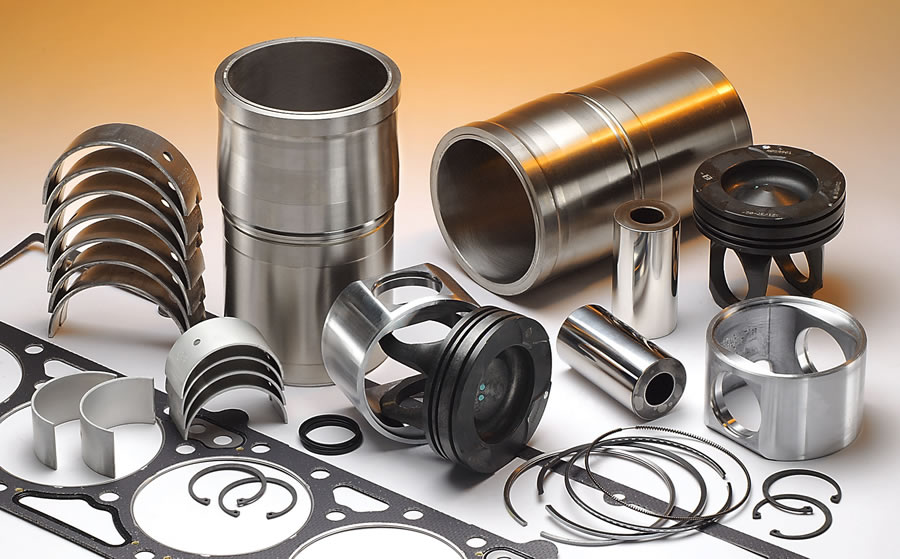How to Export Engine Parts from Nigeria: The Ultimate Guide
How to Export Engine Parts from Nigeria: The Ultimate Guide
Buying engine parts in Nigeria is not an easy task. There are many things to consider and it can be difficult to know when you’ve landed the right deal. That’s why we’ve put together this ultimate guide to help you with all your exporting needs.
Take a look through this article and find out how to export engine parts from Nigeria, with minimal hassle. From knowing what to look for in the different types of engines, to making sure that you don’t get duped by a cheap offer, we’ve got it all covered. Here, are some ways to export engine parts with the least amount of effort on your part.
What are you looking for in engines?
You’ll need to know what type of engine you’re looking for before you can find the right one. There are many different types of engines, depending on what you need. Some engines are suitable for boats, while others are better for cars. Some engines are designed specifically for racing while others are designed to be environmentally-friendly.
One of the most important things to consider is the engine’s power. The power is measured in horsepower (HP) and is usually between 30 and 1500. You’ll also need to consider the engine’s RPM, or revolutions per minute. The RPM is measured in 1000s, so an engine with 1000 RPM will make one full rotation every second.
Keep in mind that there are many different types of engines, so it’s important to know what you need before you start looking.
How to find the right deal
When you’re importing engine parts, you need to be careful. There are deals out there that are too good to be true. And if you’re not careful, you might end up with sub-par parts or worse, no parts at all.
To avoid this, there are a few things that you can do before you even start your search.
First, you need to know the type of engine that you’re looking for. If you don’t know what type of engine you need, then you should find out the make and model of your car or other vehicle. You can do this by looking up your vehicle on the internet or asking the dealership where you purchased it.
Once you know the type of engine you’re looking for, make sure that it’s in stock. We know, this sounds like common sense but it’s important not to get your heart set on one part just because it looks nice or is well priced. If it’s not in stock then you can move on to the next option.
Finally, be sure to do some research on the company that is selling the engine parts. Ask around and find out what others think of the
What other things should you consider when buying engine parts?
When you’re looking to export engine parts from Nigeria, there are many factors to consider. You want to make sure you’re getting a good deal, and that the engine parts will be the right size and shape for your car.
You’ll also need to make sure that the material of the engine you’re buying is durable and made of quality materials. You want to make sure that it will last for a long time and that it will be strong enough for your car.
And finally, you want to make sure that you’re buying from a reputable company or supplier. You want to avoid getting duped by a cheap offer and you want to know that the parts will be delivered on time.
There are many things to consider when buying engine parts in Nigeria, but don’t worry! We’ve got you covered. Check out these tips and tricks for how to export engine parts with the least amount of hassle on your part!
How to export engine parts from Nigeria
Shipping parts from Nigeria is not as easy as it is from other countries. To export engine parts from Nigeria, you’ll need to do a bit of research.
You need to know what you’re looking for, be willing to pay a premium price, and be willing to trust the seller.
If you’re looking for a new engine, it will be even more difficult. But if you’re looking for used engine parts, it’s a bit easier. You want to research where to buy your used engine parts from and then move forward from there.
You want the engine to be in good condition and you want it to have been properly maintained. It should have been serviced regularly and have been well-maintained.
You’ll also need to be careful about whether or not the engine you’re buying is suitable for your car. You’ll want to make sure that it’s the appropriate size and has the right kind of fuel injection system.
There are plenty of different places you can buy your engine from, but we recommend doing your research first.
What do you need to know before exporting?
There are many things to consider before exporting engine parts. Knowing what you’re looking for will help you find the right deal. For example, what type of engine are you looking to export?
When it comes to engines, there are many different types to consider. For example, you may be looking for a diesel engine, petrol engine, or even a hybrid engine. You’ll need to know which type of engine you want to export in order to get the best deal.
There are other factors to take into account too. For example, do you need a second-hand engine or a new engine? Will you need the engine to be mounted on the car or are you looking for an engine that’s ready to be installed? These are all things that will help you find the right engine for your needs.
Be wary of any company that offers a deal that seems too good to be true. If the price is too low, it may be because the quality of the engine is lower. You don’t want to end up with an engine that doesn’t work or causes other problems!
Find out how much your goods are worth
The other thing you should do is find out what your goods are worth. You should be able to compare prices of different parts at various dealers before you decide on one. This is the best way to find out which one is giving you the best deal, and it will also help you figure out what the price of your goods will be. The other thing you should do is find out what your goods are worth. You should be able to compare prices of different parts at various dealers before you decide on one. This is the best way to find out which one is giving you the best deal, and it will also help you figure out what the price of your goods will be.
A way to do this is by figuring out how many parts you need and how much they cost individually at different dealers. You will then find out which dealer is giving you the best deal, and this will allow you to set your price accordingly.
Register with Customs
When importing and exporting through the ports, one of the most important things to do is register with Customs. Registering will allow your export clearances to flow more smoothly. This makes the process easier for you, as you’ll have less paperwork to complete.
Additionally, if you are importing or exporting through land borders, you also need to register with Customs. It’s important to be registered with Customs because it makes it easier for them to track you.
Registration with Customs is easy. You just have to fill out the form and give them all your information. You’ll have to provide information about your company, what you are importing or exporting, and the estimated value of the goods. This way, they can verify that you are not trying to import or export anything that would be deemed illegal or harmful to your country.
After registering with customs, you are now able to clear the goods through customs without any hassle.
How to ship goods abroad
This step is a crucial one, as you need to know the specifics of the type of engine that you are exporting. You must have a handle on the country that you are exporting to and the type of engine parts. For example, if the engine parts are being shipped to Kenya, then you will need to know if they can be used on a truck or a car.
The next thing you need to do is to find out if your country of origin has a bilateral agreement with Kenya. This will help you determine if there are any taxes to be paid at customs. Some countries charge a tax on imported goods, but a bilateral agreement will help you minimize this risk.
Another consideration is the type of goods that you are exporting. What is the engine part that you are exporting? Is it a part for a car or a truck? If it’s for a car, can it be installed as well as serviced in Kenya?
You should also find out if there are any import restrictions or limitations for Kenya. Is there an import duty or any other tax that might be applicable?
If you want to export engine parts from Nigeria, then you need to take these considerations into account before setting off on your tricky journey.<<
What documents do you need?
The first step to exporting engine parts from Nigeria is to verify that you have the right documents. If you’re importing a vehicle, for example, you’ll need a letter from the Nigerian Customs Service stating that your car is cleared to be exported. In this case, you’ll also need a letter from the Nigerian Federal Road Safety Corps. On top of these documents, you can also be asked for proof of ownership, proof of payment, proof of ownership, proof of payment and proof of insurance.
Conclusion
So, there you have it, you now know how to export engine parts without any hassle. Just make sure to follow these easy steps, and you’ll be good to go!








LEAVE A COMMENT
You must be logged in to post a comment.